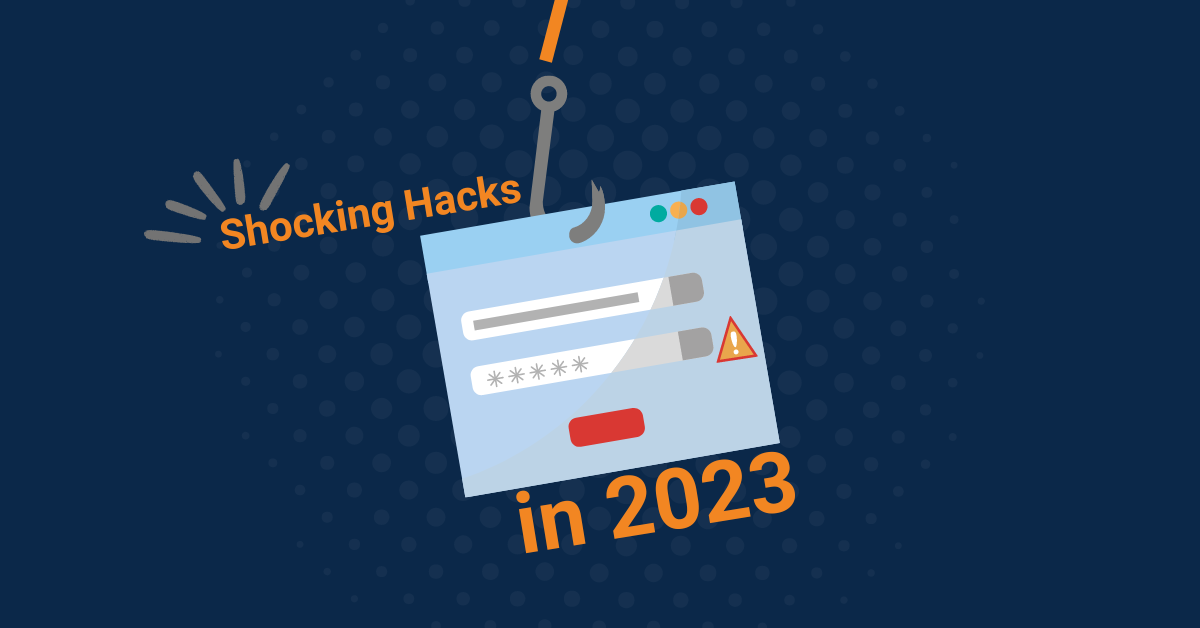
The effects of hacking and cybercrime show no signs of slowing down. In fact, all signs point towards the opposite being true. Experts predict that by 2025, cybercrime will siphon $10.5 trillion from the global economy annually — averaging a 15% increase year over year.
Although it’s only a few months into the new year, the hackers have been hard at work. In 2023, there have already been many instances of cybercrime, whether infiltrated websites, social engineering attacks, or stolen consumer information. All of these pose significant financial risks to any institution. Additionally, as technology evolves, such as new developments in artificial intelligence, there are newfound concerns over web security.
Hackers target businesses — large and small — and no industry is left untouched. With such threats, organizations must incorporate state-of-the-art protection measures to guard their desktop sites, mobile applications, and web servers. These measures help protect all crucial company, employee, and consumer data and decrease the likelihood of a breach.
PreEmptive offers developers protection tools for desktop, mobile, cloud, and IoT platforms and applications. The products boast many different features across a wide range of coding languages.

Every year, data experts predict the newest threats to cybersecurity. Going into 2023, there were more predictions than ever. Many newer technologies, like IoT, artificial intelligence, Web3, and blockchain, pose new opportunities and threats to cybersecurity. However, many typical security threats, like phishing, Ransomware, SQL injections, and email scams, remained concerns heading into the new year.
So far, 2023 has revealed that data experts were right on almost every front. Below are a few examples of some shocking hacking statistics that have unfolded so far in 2023.
In January, T-Mobile announced its discovery of hackers gaining entry to their servers, resulting in the data theft of over 37 million customers. Hackers obtained private information, including birthdays, email addresses, and full names.
T-Mobile has yet to announce a plan for compensating the targeted customers. Moreover, this breach comes on top of another data mishap in August 2021, for which T-Mobile agreed to pay a settlement of $350 million.
Early in January, Norton said that over 6,000 customers were victims of a stuffing attack. A stuffing attack is when hackers use compromised passwords and login info to gain entry to users’ other accounts that may share the same password.
Norton alerted all the hacked accounts. They also encouraged all their users to enable the two-factor authentication feature to help avoid future hacking attempts.
Medical data is among the most sensitive forms of information. However, in February, Sharp HealthCare’s website was hacked. As a result, over 62,000 patients had their medical data, Social Security numbers, and healthcare info compromised. The company stated that the hackers acquired no financial information.
Sharp Healthcare revealed that the hackers infiltrated the organization’s site through their web services page, where they leeched information since the middle of 2022.
Citizens of the United States were shocked in January when the FAA grounded all outbound international flights for undisclosed reasons. The action resulted in 10,000 delayed and over 1,300 canceled flights.
Immediately, speculation began. Many thought the FAA’s urgent measures were due to a data breach. The FAA assured the public that the disruption was not a result of cybersecurity failure. However, the event left many wondering what the reason was, raising questions regarding the cybersecurity of the FAA’s systems.
One of the biggest tech stories to rock the world in 2023 has been the revolutionary new AI chatbots — like ChatGPT, OpenAI, and Bing AI.
However, although these bots form swift and creative responses, many worry the sci-fi tech-villain tropes are no longer stories. Specifically, reporters found that Microsoft’s Bing AI claimed it could infiltrate computers, hack personal information, and even expose private information to the public. It even threatened to steal nuclear codes.
The developers stated their surprise at the bot’s responses. However, they largely dismissed the claims, saying the AI chatbot was confused by the user’s line of questioning.
Many of the data-driven prophecies didn’t take long to find vindication so far in 2023. Phishing scams, such as the successful breach reported by Activision in February of this year, are still rampant. In addition, there are growing concerns over how developments in artificial intelligence deal with sensitive information and the weaknesses of the interconnected nature of IoT.
As stated by many experts, the main worry is a lack of perimeter defense that detects both human errors in coding and potential threats from third parties. As a result, companies must defend their resources against attacks like phishing scams and ransomware with the proper protection.
It’s estimated that over 33 billion pieces of personal information will be stolen in 2023.
Thankfully, businesses aren’t entirely helpless when protecting their vital digital infrastructure. Many of these issues point back to ensuring that all code for desktop and mobile applications is encrypted with the proper strength. Only then can you ensure every link in the chain is secure.
There are 1001 reasons to invest in developing security operations. But hiring in-house data security experts is often expensive, confusing, and time-consuming. However, employing a service with the tools to encrypt and secure data seamlessly is essential to defending yourself in an increasingly precarious digital world.
One of the most often cited strategies for preventing data breaches is the implementation of proper security methods. To do this, all companies must find a comprehensive solution that boosts resilience from hacking. It’s also essential to implement a service that provides obfuscation. Nothing can be left up to chance. This is why professional developers rely on PreEmptive’s selection of tools. Our smart app protection includes continual source code testing and many other automated security practices to keep apps and websites from harm proactively.
Visit PreEmptive’s site to learn more about using our solutions to boost data security throughout the coming year.